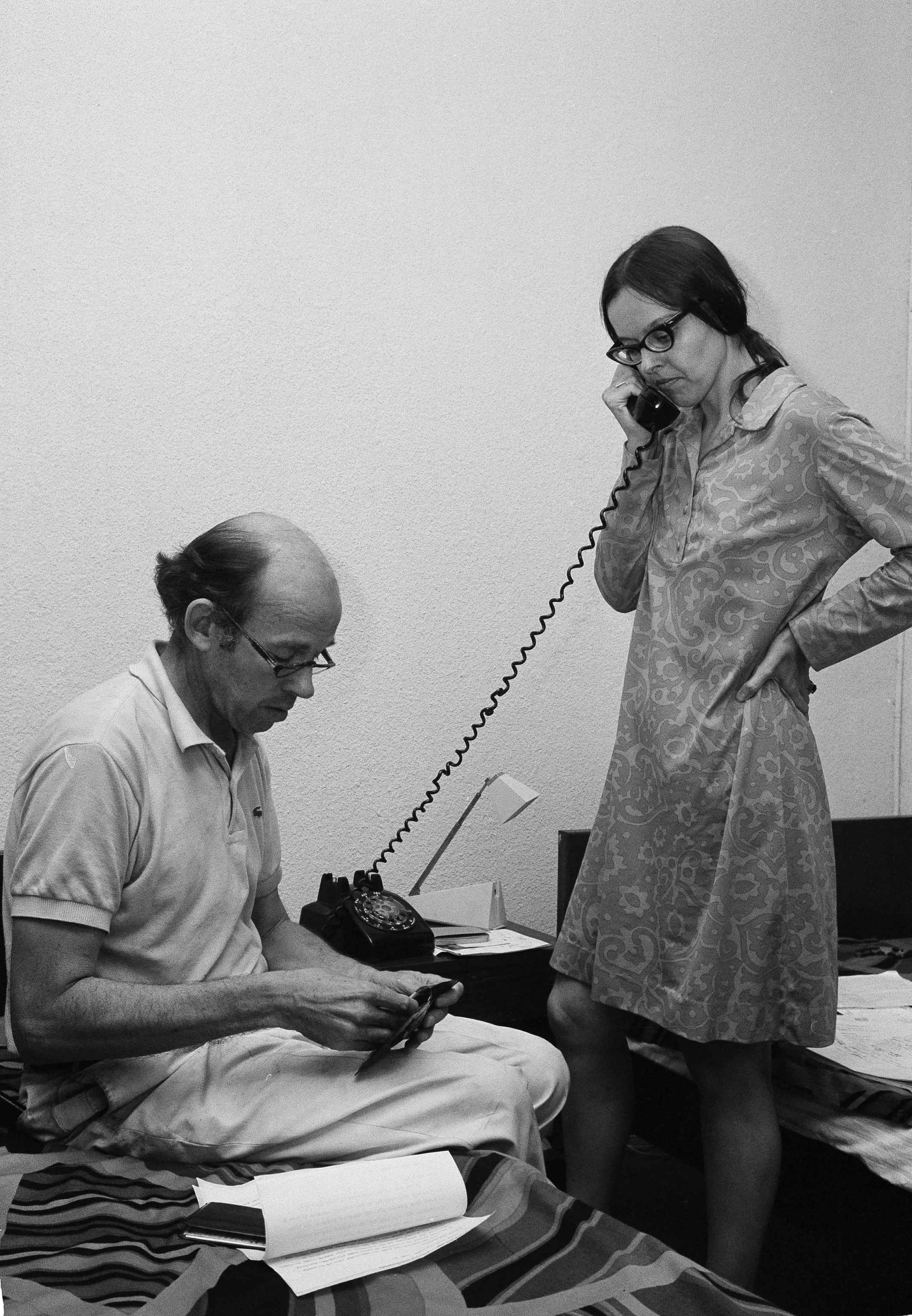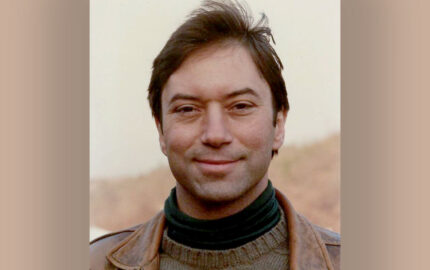Richard Dudman, a 1954 Nieman Fellow and longtime St. Louis Post-Dispatch reporter who, while on assignment in Cambodia, was ambushed by Viet Cong fighters and held in captivity for more than a month, died August 3 in Blue Hill, Maine. He was 99.
Dudman, who reported from around the world for the Post-Dispatch, was traveling from the South Vietnamese capital of Saigon to Cambodia with Elizabeth Pond of The Christian Science Monitor and Michael Morrow of Dispatch News Service International when they were stopped by three armed Viet Cong guerrillas—who were convinced the journalists were CIA agents—at a roadblock and taken captive. They were transported between various locations before being released on a highway in Cambodia on the night of June 15, 1970, leaving them to hitchhike back to Saigon. Dudman detailed their account in his 1972 book “Forty Days with the Enemy.”
Born in Centerville, Iowa and raised in Portland, Oregon, Dudman began his journalism career while a student at Stanford University, reporting for The Stanford Daily and, during summer vacations, working for The Mercury-Register in Oroville, California. After graduating in 1940 with a degree in economics and journalism, he joined the Merchant Marine and, in 1942, enlisted in the Navy Reserves, and spent four years on an armed supply ship.
He was then hired by The Denver Post before joining the Post-Dispatch in 1949. While there, he covered wars and revolutions from around the world, from Cuba and Guatemala to the Middle East. He was in Dallas when John F. Kennedy was assassinated in 1963 and witnessed the president’s assassin, Lee Harvey Oswald, being killed by Jack Ruby two days later. He joined the Post-Dispatch’s Washington bureau in 1954, and became bureau chief in 1969, a position which he held until retiring in 1981—covering the assassination attempt of President Ronald Reagan on his last day at work. He and his wife, Helen Sloane Dudman, moved to Maine, where he didn’t take retirement too seriously; instead, he spent nearly a decade as the managing editor of the South-North News Service in Hanover, Hew Hampshire, and regularly wrote editorials for The Bangor Daily News. In 1993, on special assignment for the Post-Dispatch, he returned to Vietnam to interview the general who had captured him in Cambodia. He received a George Polk Career Award for his work that same year.
Dudman is survived by his wife, two daughters, and four grandchildren.
Dudman, who reported from around the world for the Post-Dispatch, was traveling from the South Vietnamese capital of Saigon to Cambodia with Elizabeth Pond of The Christian Science Monitor and Michael Morrow of Dispatch News Service International when they were stopped by three armed Viet Cong guerrillas—who were convinced the journalists were CIA agents—at a roadblock and taken captive. They were transported between various locations before being released on a highway in Cambodia on the night of June 15, 1970, leaving them to hitchhike back to Saigon. Dudman detailed their account in his 1972 book “Forty Days with the Enemy.”
Born in Centerville, Iowa and raised in Portland, Oregon, Dudman began his journalism career while a student at Stanford University, reporting for The Stanford Daily and, during summer vacations, working for The Mercury-Register in Oroville, California. After graduating in 1940 with a degree in economics and journalism, he joined the Merchant Marine and, in 1942, enlisted in the Navy Reserves, and spent four years on an armed supply ship.
He was then hired by The Denver Post before joining the Post-Dispatch in 1949. While there, he covered wars and revolutions from around the world, from Cuba and Guatemala to the Middle East. He was in Dallas when John F. Kennedy was assassinated in 1963 and witnessed the president’s assassin, Lee Harvey Oswald, being killed by Jack Ruby two days later. He joined the Post-Dispatch’s Washington bureau in 1954, and became bureau chief in 1969, a position which he held until retiring in 1981—covering the assassination attempt of President Ronald Reagan on his last day at work. He and his wife, Helen Sloane Dudman, moved to Maine, where he didn’t take retirement too seriously; instead, he spent nearly a decade as the managing editor of the South-North News Service in Hanover, Hew Hampshire, and regularly wrote editorials for The Bangor Daily News. In 1993, on special assignment for the Post-Dispatch, he returned to Vietnam to interview the general who had captured him in Cambodia. He received a George Polk Career Award for his work that same year.
Dudman is survived by his wife, two daughters, and four grandchildren.



